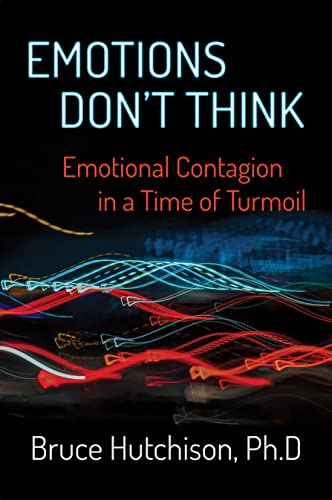Why relationship management is a 'huge challenge' for frontline managers

Safety leaders have a lot of hazards to navigate, and many of them are easily identifiable. They can be seen, heard, smelled, and touched (hopefully not tasted too often). But there are less obvious hazards too. With the recent focus on mental health, conversations around what people are feeling have become more prevalent, but can those feelings be hazardous? And what happens when global, national, provincial, or workplace politics enter the mix?
“One of the biggest challenges is just relationship management,” says David Dunham, a CRSP and a senior safety advisor with BC Hydro. In his role, Dunham has many relationships to navigate, including those with frontline workers, senior management, contractors, and the regulator. “I find that's a huge challenge, just navigating all those different relationships.”
Humans are emotional beings, and we have the power to spread our emotions to others, according to Dr. Bruce Hutchison, a retired psychologist, and the author of ‘Emotions Don't Think: Emotional Contagion in a Time of Turmoil’ which focuses on how that emotional transference takes place.

Subscribe to the free Canadian Occupational Safety newsletter
Emotional contagion in the workplace
It’s easy for emotions to spread in a workplace, according to Hutchison, especially during impassioned conversations. “It's not just the words, it's the emotion that get expressed, and that happens in the workplace a lot.”
Hutchison says identities are often connected to jobs which make workplace issues prone to high levels of emotion because it can impact reputations. Hutchison suggests emotions like frustration, anger, and discontent are easily transferable from one worker to another.
“Arguments can happen, people can get accused of things. It can go both degrees negative and positive… relationships can develop in a workplace that might be a problem… there might be some contentious issues between employees.”
Hutchison refers to “conflict contagion” which he says is “not a healthy thing.” He says relationships, and the emotions involved, need to be managed, and “it's important not to spread the emotions because they can boil over and carry things too far.”
When politics enters the workplace
Workplaces often have their own internal politics. Dunham says this is a big part of the challenges he faces in navigating relationships.
“I see a lot of mistakes are made when people react to the emotional context, or they react to the political strategizing, and by political, I mean sometimes safety is kind of weaponized.”
Dunham has seen instances where workers may suggest something is a safety concern and use that as leverage to achieve some other non-safety related objective.
But bigger, broader political beliefs can also impact the emotions of a workplace. Hutchison refers to the January 6th insurrection attempt in the United States in 2021 and the 2022 Freedom Convoy in Ottawa as large-scale political movements that were fuelled by an emotional contagion composed of anger, resentment, and distrust.
These divisions that exist outside the workplace can often creep into it, according to Hutchison, with people taking sides in these national political debates.
“People get cornered and trapped,” says Hutchison, “whereas in reality, we can take different viewpoints, because we're an individual person…we don't need to be trapped in a corner based upon how you identify and label yourself.”
Navigating these unseen hazards
Safety leaders can navigate politics and emotions in the workplace by starting with trust. Both Hutchison and Dunham suggest it’s among the most important foundational building blocks of healthy workplace relationships.
“We want to make sure that we can trust each other when you're reacting in a mine, or a job where there are emergencies, or on construction sites,” says Hutchison “and that trust relates to their ability to manage danger and risks responsibly and appropriately.”
It doesn’t involve politics, or emotions, or other baggage. For Dunham, building trust with frontline workers is critical.
“Do they trust that you're going to take action from them saying something, from bringing something up, because if they don't, they'll just stop talking.”
When workplace politics is being used a means to an end, “you have to stay just focused on problems,” says Dunham, “you have to be able to be clear headed and clear minded on what the specific safety challenges are.”
Emotions are natural and politics is everywhere. While they can present workplace hazards, trust might be the strongest control method.





